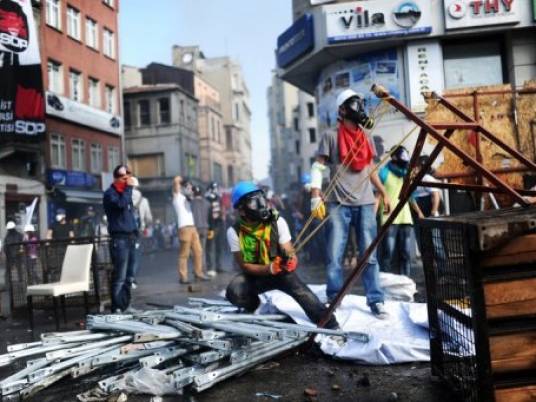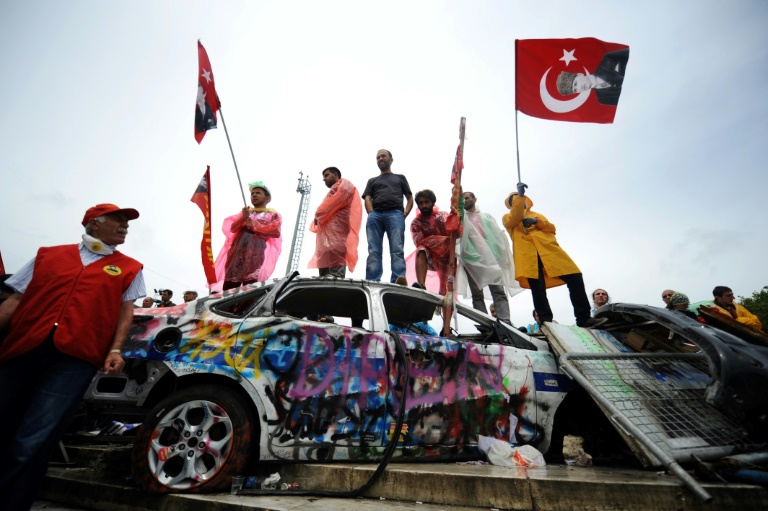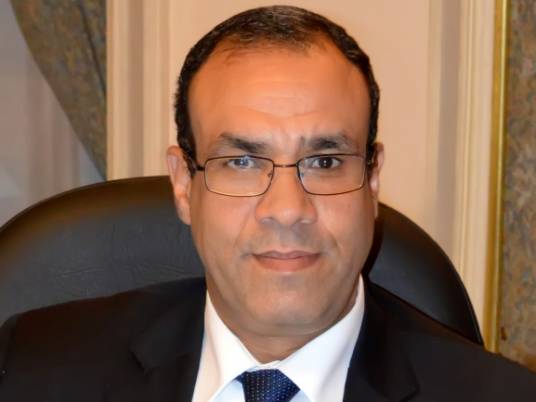
Riot police stormed Istanbul's protest square Tuesday, firing tear gas and rubber bullets at firework-hurling demonstrators in a fresh escalation of unrest after Turkish Prime Minister Recep Tayyip Erdogan said he would meet with protest leaders.
Hundreds of police poured into Taksim Square, the epicentre of nearly two weeks of anti-government demos, warning demonstrators to stay away as bulldozers began clearing the makeshift barriers erected by protesters after police pulled out of the area on 1 June.
The police's return to the square in armoured cars raised the stakes in the nationwide unrest that has posed the fiercest challenge yet to Erdogan and his Islamic-rooted government's decade-long rule.
Smoke filled the area as police doused protesters with tear gas, urging them to return to adjoining Gezi Park, with some protesters, in helmets and gas masks, throwing molotov cocktails, fireworks and stones in response. Passers-by on their way to work hurried to get out of the way, many coughing and wiping their eyes.
The intervention came just hours after Deputy Prime Minister Bulent Arinc said Erdogan would meet with protest leaders on Wednesday, in his first major concession since the trouble began 12 days ago.
But in a sign of the action to come, he warned: "Illegal demonstrations will not be allowed anymore in Turkey."
"Can you believe that? They attack Taksim, gas us in the morning just after proposing talks with us? What kind of leader is that?" said Yulmiz, 23, after waking up to the clashes in his tent in Gezi Park.
"We won't abandon Gezi, they can send thousands of policemen, he vowed. "I am not afraid of their water cannon, it'll be my first shower in three days."
The nationwide unrest first erupted after police cracked down heavily on a campaign to save Gezi Park from demolition on 31 May.
The trouble spiralled into mass displays of anger against Erdogan and his ruling Justice and Development Party (AKP), seen as increasingly authoritarian.
Nearly 5,000 demonstrators, scores of whom are young and middle-class, have been injured and three people have died, raising concerns among Turkey's western partners about its democratic credentials.
"This spectacle (of protesters in Taksim Square) upset people….tarnished the country's image before the eyes of the world," Istanbul governor Huseyin Avni Mutlu said in televised remarks, blaming the unrest on "fringe elements.”
He added that police would not interfere with the protesters camping out in Gezi Park.
The protesters reacted angrily to the police intervention. "We will fight. We want freedom. We are freedom fighters," Burak Arat, a 24-year-old tourism student, told AFP as he rushed to the smoke-filled square.
In a clear signal they were reclaiming Taksim, police removed dozens of flags and anti-Erdogan banners that had adorned a cultural centre overlooking the square in recent days. They were replaced with a single Turkish flag and a large portrait of Mustafa Kemal Ataturk, the father of modern Turkey, whose image has also been adopted by the protesters.
Tens of thousands over the weekend defied Erdogan's call to end their protests in cities across Turkey after he warned that his patience "has a limit.”
Overnight, trouble flared again in the capital Ankara, where riot police doused hundreds of protesters with tear gas for a third consecutive day.
Turkey's combative leader has so far responded with defiance to the protesters. On Sunday, he inflamed tensions by staging his own rallies, firing up AKP supporters with combative rhetoric.
"Those who do not respect this nation's party in power will pay a price," he told thousands of cheering party faithful in Ankara, as just a few kilometres away riot police clashed with demonstrators.
Opponents accuse Erdogan of repressing critics — including journalists, minority Kurds and the military — and of pushing conservative Islamic values on the mainly Muslim but staunchly secular nation.
But the 59-year-old, in power since 2002, remains the country's favourite politician. His AKP has won three elections in a row and took nearly half the vote in the 2011 polls, having presided over strong economic growth.
The premier has urged loyalists to respond to the demonstrators by voting for the AKP in local polls next year.
Erdogan has faced international condemnation for his handling of the crisis in Turkey, a country of 76 million at the crossroads of East and West and a key strategic partner in the region for the United States and other Western allies.



